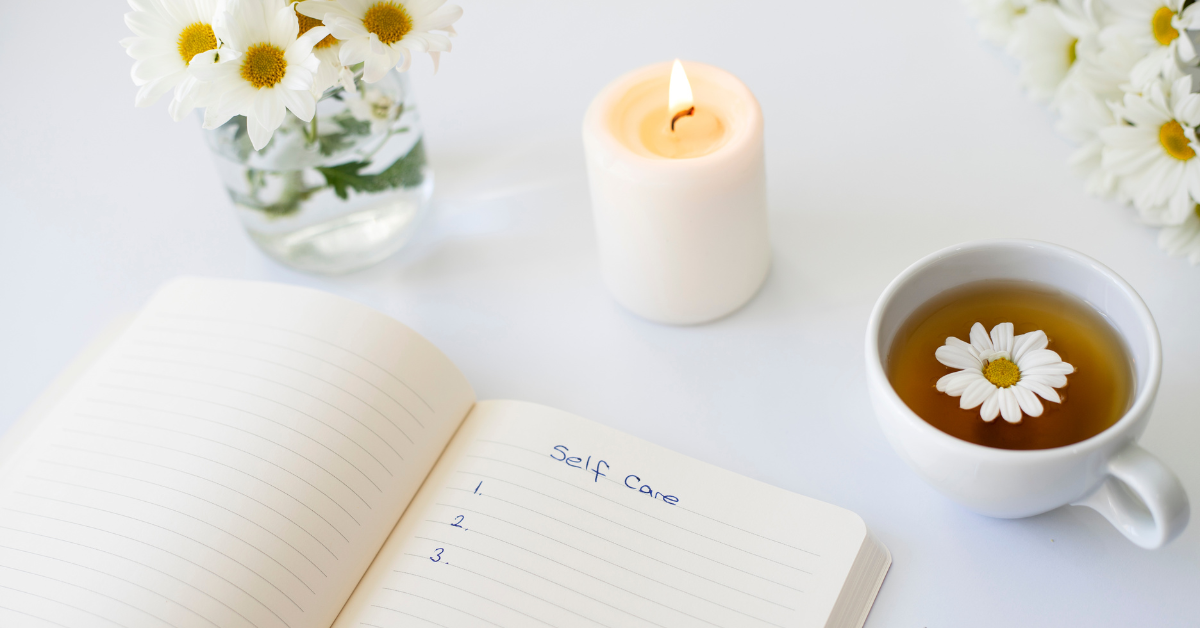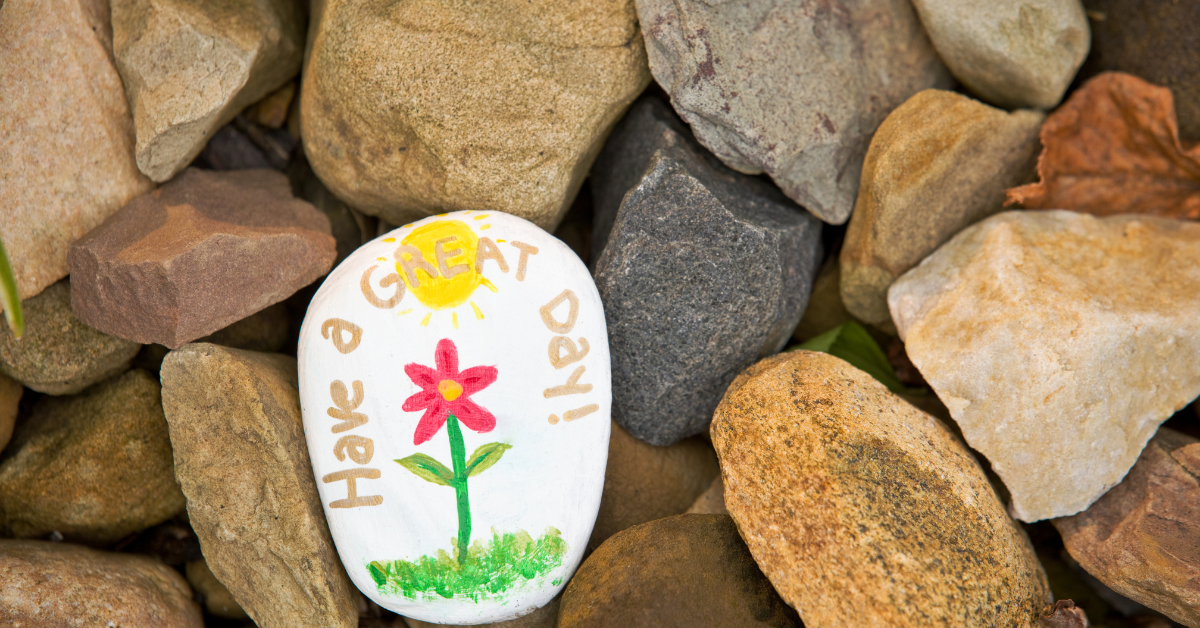172. What Does Self-Care as a Christian with OCD Look Like?
Written by Carrie Bock on . Posted in OCD, Podcast Episode.
In this episode, Carrie dives into the true meaning of self-care—going far beyond bubble baths and downtime. She shares her personal journey through a challenging season, exploring how soul care, healthy boundaries, and physical wellness play essential roles in managing life and faith with OCD.
Episode Highlights:
- Why soul care must come before any other kind of self-care—and how your connection with God fuels everything else.
- How to identify when your schedule is overloaded and what it looks like to say no, even to good things.
- Ways stress and OCD are connected, and how managing physical health impacts mental well-being.
- The importance of not taking on others’ emotional burdens, and how to set healthy spiritual and emotional boundaries.
- Simple, restorative ways to reconnect with joy and rest, even in the middle of a hectic season or spiritual struggle.
Episode Summary:
When most people think of self-care, they picture bubble baths, painted toenails, or maybe a good book and some quiet time. And while those things can be wonderful, they only scratch the surface.
I invite you into a much deeper, more meaningful understanding of self-care—especially as it relates to those walking with OCD and seeking healing through faith.
Lately, life has felt especially full—between my husband’s ongoing health issues, changes in my daughter’s childcare schedule, and the rapid growth of my counseling practice, I’ve had to take a hard look at how I’m caring for myself. What I’ve come to realize is that if I don’t prioritize soul care—intentional time in God’s presence, even if it’s messy or imperfect—everything else starts to unravel.
In this episode, I open up about what soul care looks like when OCD is making prayer and scripture feel overwhelming, and I share strategies for navigating those tough moments with grace.
I also talk about boundaries, burnout, and the pressure we often feel to please others—especially in ministry and church life. I walk through five practical pillars of self-care from a Christian lens, including how to steward your body, say “no” with confidence, protect your emotional space from drama, and make time for joy and rest in your life.
If you’re feeling overwhelmed, stretched thin, or spiritually stuck, this episode is for you. You’re not broken or failing—you’re human, and God is inviting you into a rhythm of grace that refreshes and restores.
Tune in to the full episode to discover what self-care really means for you as a Christian—and how it can lead to deeper peace, healing, and spiritual renewal.
Transcript
Self-care is such a buzzword in today’s society. When you first hear the word self-care, you’re probably thinking about bubble baths or getting your toenails painted. If you’re a woman, if you’re a guy, you might be thinking about going out and working on a project in the workshop or the garage. What really is self-care all about?
And what does it mean for you as a Christian struggling with OCD? That’s what we’re gonna talk about today.
Hello and welcome to Christian Faith and OCD with Carrie Bock. I’m a Christ follower. Wife and mother licensed professional counselor who helps Christians struggling with OCD get to a deeper level of healing. When I couldn’t find resources for my clients with OCD, God called me to bring this podcast to you with practical tools for developing greater peace.
We’re here to bust through the shame and stigma surrounding struggling with OCD as a Christian. Sharing hopeful stories of healing and helping you replace uncertainty with faith. I’m here to help you. Let go of the past and future to walk in the present abundant life God has for you. So let’s dive right into today’s episode.
This conversation about self-care just comes at a really interesting time because my husband has been a little bit more sick lately, more fatigued. He’s had some just sinus stuff going on that just won’t clear. And as a result, we’re gonna be traveling to the various doctors, the allergists, the ENT coming up to just try to see if he can get a handle on kinda what’s happening in his body.
And while all this was going on, my daughter’s childcare program changed hours, which reduced. My work time that I had during the day, ’cause I was having to pick her up earlier from one of the programs and sometimes do this loop where I go back to the office. My business is growing, it is keeping me busier than ever.
So self-care is. Something that I’ve recognized has to rise to the surface in my own life, and I think that that also has prompted me to wanna be able to talk with you about it. The first thing I’m gonna say about self-care is it doesn’t matter what your self-care is as a Christian, if you don’t have soul care, soul care.
Means showing up in your relationship with God. In John 6 35, Jesus said, I am the bread of life. He who comes to me shall never hunger, and he who believes in me shall never thirst. In John 15, Jesus tells us to abide in Him and that apart from him, we can do nothing. The word of God and our time with the Lord is food.
It’s spiritual food. It’s nourishing to us. And we need it every day. And I know so many of you are struggling in your time with God because you’re getting so triggered by OCD, whether it’s you’re trying to pray and then just things get really off kilter and you have confession, urges, or just to repeat prayers, pray them a certain way.
You may go to read scripture and you’re seeing certain words that trigger you, or you are reading certain scripture passages that then cause you to. I get into an obsessional spiral. So I just wanna say that on those days where it’s really tough and you’re really distraught, and it could be something non OCD related, because I’ve gone through like grief and loss, I’ve gone through depression in my life.
And sometimes it’s just opening up to a Psalm, maybe Psalm 23. Just really meditating on that. Slowing down, breathing. I think slowing down is a big key and not putting too much pressure on yourself. Maybe you start with a psalm that expresses how you feel. You can even Google Psalms of lament. We should do a whole podcast episode on lamenting at some point because it’s in scripture and I think so much misunderstood.
God wants us to bring all of ourself to him, not just the clean, neat church smile part of you, but really the raw and broken. Hey, I don’t feel like I have anything to give today, but I’m here, God, and I love you, and I’m showing up. If you’re struggling, know that God understands this better than even you do.
That always brings me comfort. God knows exactly what’s going on with us inside and out. Maybe you take a few scriptures that are really focused on. The father, heart of God on God’s love for you on God’s patience, forgiveness, and really just taking the time to meditate on those. I think we have this concept of what our Bible reading time or devotional time should look like.
I struggled with this for a long time as a Christian because it was almost like you always heard people say, have a quiet time, but nobody ever told you like how to have a quiet time. I don’t know if you really grew up the same way in your church, but that’s how it was. Like, Hey, you’re supposed to have this quiet time.
What do you do during the quiet time? Well, you read and you pray. There wasn’t a whole lot of guidance, and I guess what I would say is now that I’ve been a Christian A. Long time, it looks different on different days, and it looks different in different seasons. Sometimes, like I said, in the really messy seasons, it may just be sitting with one verse.
And just doing your best to pray and connect with God. It may be crying and praying. It may be journaling about a, a certain verse or like some words that stood out to you as you were reading. And then there’s other times where it may be really deep diving into a chapter and looking at who wrote this and what are the main themes of this book of the Bible may just be popping in the earbuds and listening to the whole book.
If it’s a short one, like the one that only has four or five chapters. It’s okay that things may look different at different times in different seasons. It may mean that you pop on some worship music as you’re getting ready in the morning and that you pray on your way to work and that you didn’t have time to open your Bible until lunch.
You know what season you’re in and God loves you and he knows that what the desires of your heart are. I say all that to say, I don’t think that there’s one right way to connect with God. So if you’ve been in maybe a rigid system or you’ve developed some kind of rules like, oh, I have to read this much every day.
Or I have to pray this much every day, or, oh, I have to pray about these specific things every day. Just know that some of those things might not even be bad because you may be from a more traditional type orthodox Christianity that has certain morning prayers or evening prayers. None of those things are bad, but also it’s not helpful for us if we’re constantly beating ourselves up over something that we didn’t do or some way that we feel like we’re failing God, that’s not actually helping us connect with him.
It more often is causing us to hide or to turn away or to avoid God or things that are related to our religious practice because then we’re uncomfortable. All that to say, make sure that you are taking care of your soul in the sense of connecting with God each and every day. Pursuing him, getting to know him.
The second thing I wanna say about self-care is that self-care means monitoring how much you’re doing and cutting out things as necessary. OCD gets worse with any kind of stress that you face. You’re going to have to say no from time to time, and that may mean that some people are disappointed. That’s okay.
I recently had to let go of a leadership responsibility at church because I evaluated my life and everything that was going on, and was just really honest with the person in charge of like, Hey, these meetings are not at a good day and time for me. That had been expressed previously, so that wasn’t anything new.
I have these responsibilities with my home. I really want to pour into my marriage. I wanna pour into my relationship with my daughter, and also I have a lot happening in my business, and so I’m just not able to continue this one area as well. Unfortunately, the other person was very gracious and understanding of that conversation.
I also wanted to bring this up to you guys because this was a situation that I got into, and I think this happens to us with church or with other situations where you kind of were told to do something. You weren’t really asked, Hey, do you wanna do this? Do you wanna have these responsibilities?
Literally, it was just like, oh, hey Kerry, we’re having this meeting and we need you to be at it. Literally was how this transpired. And then this meetings had been going on for about a year, and I stepped back and realized, you know what, A, I never signed up to do this. B, I was never told what the responsibilities would be.
And C, had I been told when the meetings were and what the responsibilities were and things spelled out as they have unfolded to where they are now, I probably would’ve said, I’m sorry. I’m not able to commit to that. We get in these types of situations, right? Where somebody says, oh hey, will you do this for your kid’s school?
Or Will you do that for this event we’re having? And then next thing you know, you’re on like some committee and it’s like, wait a minute, I just agreed to do this one thing or to help y’all out like one time I didn’t agree to this full extra. It’s a very easy to kind of have things be added onto your plate and you don’t even realize it.
Next thing you know, you go. Whoa. My plate’s too full. I’ve got too much on here. Something’s gotta go. And then you feel like, oh, if I let any of this go, it’s all good things. It’s all helpful things. And somebody’s gonna be disappointed, and I’m gonna end up letting somebody down. You really have to sit back and evaluate what is most important to you in terms of relationship with God, relationship with your family, relationship with church and others.
If you feel like you’re on the edge of burnout and you just can’t do it all that means you need to take a step back and probably cut something out or simplify something in your life. It’s time for a change for sure, because what I’ve noticed for me is that if I do get in those places where I get close to burnout, I start having migraines or insomnia, or I get sick more often because I’m more stressed if I’m not taking good care of myself.
These are the consequences that happen, and I don’t want that to happen. I’ve said for a long time to people that if you don’t take a break, that your body will take the break for you. And what that means is eventually your body’s gonna break down to where it’s not able to function well, and you’ll be forced to take a break.
This is a great lead in to my third point about self-care, which is that self-care means taking care of your physical body. It is just astonishing to me. How many of y’all are not eating on a regular basis? How many of you are not getting a full night’s sleep? I understand sometimes the sleeping thing can be outta your control, but let’s get off our phone and stop scrolling and have a normal bedtime and have a good routine and not trying to cram too much into the day at the end of the day.
You’ve got to get a good night’s sleep. You’ve gotta eat on a regular basis and move your body. I know that these may seem like tall orders to some of you, like, no, I don’t really have time to meal prep. I’ll just run through the drive through, or I. I don’t have time to exercise. Don’t look at it as exercise.
Look at it as how can I move my body more? What does that look like? Can I take a small walk at lunch? Can I get a treadmill for under the desk? Can I take the stairs at work? We all can look at these little pockets in our life of time where you might be able to do that. Maybe your kid is practicing baseball and there’s somewhere for you to walk at the park where you can do that while your kid is practicing.
There’s always opportunities for us to engage more in our health, and what I’ve noticed over the years is that small changes will slowly lead to bigger and bigger changes. It’s taken me a little bit of time, but I’m now at the place where either Saturday or Sunday, I will prep breakfast, lunch, and dinner for Monday and Tuesday.
This helps me really kickstart the week off to a good start, reduces some stress off my plate, knowing that hey, nourishment is in the refrigerator. It’s been provided. All I have to do is warm it up and I’m good to go. I have found some really easy, simple meal prep stuff that doesn’t take me a long time to put together that I actually enjoy y’all.
I have tried the overnight oats for y’all that do the overnight oats. There are about 50 different recipes online, I’m sure much more of all different kinds of overnight oats. I just can’t do them. I don’t enjoy them. But if you enjoy overnight oats, then you go for it. That’s just one example. But there’s smoothies and.
Chia seeds and Greek yogurt. So many different things that you can prep for yourself. If you are listening to this episode and you feel like you don’t have any of these physical health things going with your body right now, I want you to just choose one that you are gonna focus on One thing. You cannot try to change everything at once.
Don’t think that you’re gonna rehab your entire schedule overnight in order to adopt a physically healthy lifestyle. You’ll be able to white knuckle that for a little while. Then you will eventually crash and go back to your old habits. Slow changes are much more reasonable and sustainable. Point number four, self-care means I don’t take on other people’s stuff.
AKA junk, AKA drama. I don’t get absorbed in other people’s problems, crises. I don’t get absorbed in the world’s problems and crises. The good Lord knows there is all kinds of crazy stuff going on in the world, and it’s important that we separate ourselves a little bit from it. Does it mean that we don’t care about it?
No, that’s not what it means. Does it mean that we don’t take any appropriate action? No, that’s not what I’m saying. But what happens a lot of times is we get really stirred up. By other people’s drama or drama that’s happening in the world around us or in our community, and we emotionally latch onto those things where it’s causing us a lot of distress over things that we are not in control of.
If you look at two circles, I call this the circles of control. You’ve got a circle of what am I actually in control of, and then a circle of what is outside of my control. Now, as a Christian, we have responsibility for what is in our circle of control. Everything else is God’s domain. We take that to him so that if you’re having difficulties with your mother-in-law and you feel like she’s causing a lot of drama in the family, if you have a sibling that you’re at odds with and they just don’t wanna reconcile, they’re not listening to any kind of reason.
Maybe you have somebody in your family that has an addiction, you have a coworker who’s just being spiteful to you. There’s a lot of things that you might not have control over in your life, and so when you recognize that, and sometimes people get those confused, I think sometimes people think that they can somehow control another person’s feeling state or control another person’s actions or control another person’s choices.
No, we are not in control of those things. What we are in control of is our emotional experience, our choices, how we speak to other people, how we handle conflictual situations. But you know what? In conflict, sometimes the other person doesn’t want to come to the table. They are interested in talking about it.
Or every time they do come to the table, they’re hateful and spiteful towards you. So then you end up having to shut down the conversation or putting up a boundary. You can only do what you can do, everything else you take to the Lord in prayer and say, okay, I am not in control of the situation, but it is stressing me out.
God, I need some help here to know what is my role, what is my responsibility, and what do I need to let go and just trust you and say, you got this. So that is so important and I think something that I ask God pretty frequently, like, okay, here’s the situation, Lord, you already know it, but here it is from my perspective.
Is there anything you want me to do in this situation? Do I need to reach out to that person? Do I need to apologize? Is there something I did? If there’s not, do I need to extend forgiveness? Do I need to extend grace? Do I need to set a boundary? There’s so many different ways that we can handle relationships, and relationships are challenging.
Okay? They just are. When you have done that and you have prayed and you have come to a place of peace of, okay, this is the piece that’s in my circle of control, that how God wants me to act based on scripture and based on his holy spirit’s leading. Then everything else, I’ve gotta let it go. If I sit and dwell on it and ruminate on it and go, oh gosh, that person’s over there messing up their life, or This country is out to get my country, I’m gonna be all sorts of distraught.
Here’s the problem. It’s gonna keep you from actually moving towards your values, towards the things that the Lord wants you to do. ’cause you’re gonna be all sorts of distracted. I think that’s a big tactic of the enemy is like if he can’t get you to sin, he is gonna try to get you distracted and distressed or overly busy or something of that nature.
But just be aware and be cautious of that. And I’ll tell you, it’s a process and it takes you a long time when you’re used to taking on other people’s stuff. It could be in a very like empathetic way, or it could be of us just like wanting to help or we all wanna fix it, right? Somebody comes to us in an issue and we wanna fix it, but the greater thing that we need to do is to be willing to sit with people in their pain, in their suffering and say, let me love you, walk with you, bring you to the Lord, cry with you.
Pray with you, support you in any way I can. Also, recognizing that we are limited, it’s important that you are able to get to a place where you’re okay, even if the other people in your life are not okay. And let me tell you, I am still somewhat in process with this, but I have come a long, long way from where I was five or 10 years ago.
My last point about self-care is that self-care means taking time to do some things that you enjoy. We live in a very busy, fast paced society where we think that it’s normal to just go, go, go, and always be doing things. That’s actually really unhealthy for us. Our bodies and brains were not meant. To constantly be in motion and constantly be running.
And I know because I’ve had seasons where I’ve been very close to burnout. I’ve had seasons where I’ve had to work two jobs in order to make things come together and work. You may be in a season where you’re working and going to school. I’ve done that season as well. You could have a lot going on, but if you don’t take the time to slow down and to do something that you enjoy that is resting, relaxing, restorative, you’re going to suffer the physical and emotional health consequences.
This may mean that you start getting panic attacks. This may mean that you just have a low level of anxiety running around in your body. This may mean that your obsessions increase a bunch. This may mean that you get physically ill, like I talked about before, or your body is just sewing signs of illness because you’re so stressed.
Sometimes people’s skin even starts breaking out into rashes or hives when they’re overly stressed. You know what those warning signs are for you? For me, one of those warning signs is migraines. I don’t get a ton of migraines, thankfully. I’m very fortunate, but I do get them every once in a while, and typically they come at times when I’m very stressed.
That’s a big red flag for me to stop. Slow down, take a step back, reevaluate. Another potential red flag for me that shows up is nightmares. I get nightmares about very specific things. They typically are, I’m late to something. I didn’t get a paper turned in on time. They typically have to do with time.
That’s my indicator that I’m stressed and I’m not doing well. Obviously, your indicators may look very different. They may look like you’re getting more irritable towards family members, or maybe it shows up as feeling mildly depressed. Knowing what your warning signs are is important, and then heating those.
Taking time to take a break from work Responsibilities, from life responsibilities. You know what types of things that you enjoy that really motivate you and keep you fulfilled? For my husband, he goes and disappears in the garage and tinkers and makes things. He makes some pretty incredible stuff out of wood scraps and some old wooden blocks that my daughter had, she wasn’t using anymore.
I enjoy being outside in nature. I enjoy little pampering type things every once in a while, like face mask or painting my toenails or soaking in the bathtub. Reading a good book. I mean, it can run the gamut of a variety of things that I do, but I. I know if I engage in these types of things on a regular basis, that I am less stressed, that I am a better mother, I’m a better wife, I am a better therapist.
You cannot give to someone else what you haven’t already received, and I think that’s why, kind of going back to point number one. The spiritual is so important that we are filling ourselves up spiritually so that we can go out and minister to other people, whatever that context looks like for you. So let’s just review the five points on self-care that I went over today real quick.
Number one is it doesn’t matter what your self care is if you don’t have soul care, and soul care is showing up in your relationship with God every day. Two. Self-care means monitoring how much you’re doing and cutting out things as necessary. You’re gonna have to say no sometimes. Number three, self-care means taking care of your physical body.
Four, self-care means I don’t take on other people’s stuff. And five, self-care means taking some time to do something that you enjoy, that refuels you. I hope this episode challenged you to think about self-care maybe a little bit differently than you have in the past, and recognize the importance of it.
I’d love to hear what you think. You can find us on Instagram where my assistant posts little quotes from our episodes or. Little video reels. Sometimes when I have an interview, it’s a good way to get little daily doses of encouragement. If you wanna come, follow us over there. If you resonated with today’s episode, you can always send it over to a friend too, who might need to hear it.
Until next time, may you be comforted by God’s great love for you. Christian faith in OCD is a production of by the well counseling. This podcast is for informational purposes only, and should not be a substitute for seeking mental health treatment in your area.




